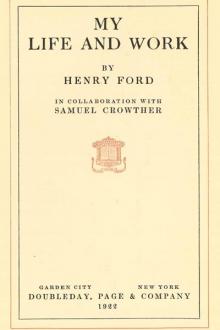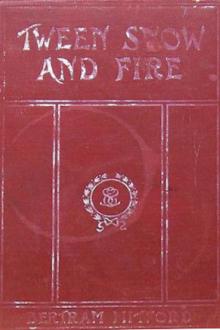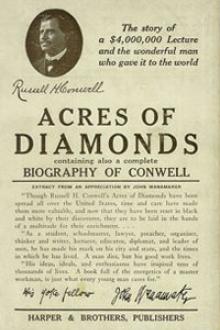My Life and Work
Book Excerpt
Doubtless our order will merge by degrees into another, and the new one will also work--but not so much by reason of what it is as by reason of what men will bring into it. The reason why Bolshevism did not work, and cannot work, is not economic. It does not matter whether industry is privately managed or socially controlled; it does not matter whether you call the workers' share "wages" or "dividends"; it does not matter whether you regimentalize the people as to food, clothing, and shelter, or whether you allow them to eat, dress, and live as they like. Those are mere matters of detail. The incapacity of the Bolshevist leaders is indicated by the fuss they made over such details. Bolshevism failed because it was both unnatural and immoral. Our system stands. Is it wrong? Of course it is wrong, at a thousand points! Is it clumsy? Of course it is clumsy. By all right and reason it ought to break down. But it does not--because it is instinct with certain economic and moral fundamentals.
The e
Editor's choice
(view all)Popular books in Biography, History
Readers reviews
His most peculiar views and most obvious prejudices appear to concern bankers and Jews. He was famously and virulently anti-Semitic, had little respect for blacks, Catholics and other minorities and although this is minimized in his book his bigotry seemed deep seated and endemic. Again this may be the result of his small town waspish upbringing but for a man of his obvious intellect one would have thought he would hold these ideas within himself rather than make millions of enemies by publishing them in his Deerfield newspaper and in abbreviated fashion in this book.
Despite the above mentioned flaws in Mr. Ford\'s personality I found the book interesting, informative and instructful. When men who achieve so much hold ideas so petty it can only make us wonder as to the nature and value of genius.
I give this work four stars largely because it not only tells much about the mind and soul of Mr. Ford but also about his unresolved internal struggle.
- Upvote (1)
- Downvote (0)

 Free Download
Free Download























